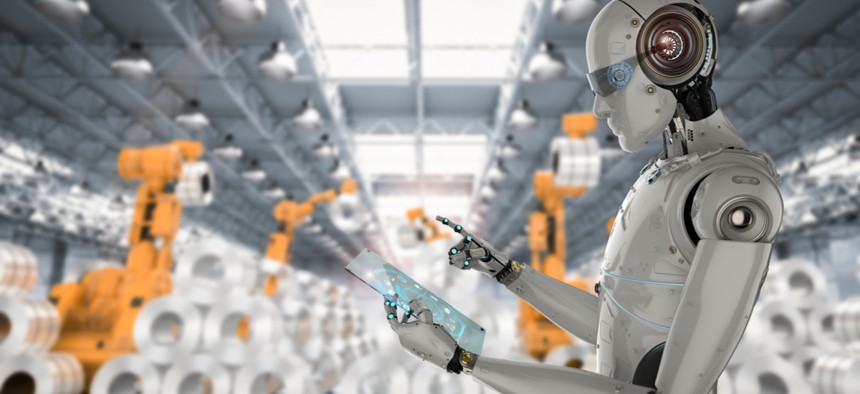By 2025, Machines Will Do More Work Than Humans, a New Report Says

Phonlamai Photo/Shutterstock.com
The robot apocalypse is coming.
There’s one number that people forget to talk about when bemoaning the imminent robot apocalypse.
It’s not the number of seconds it takes a robot to solve a Rubix cube (.38) or the number of hours it takes to train an algorithm to detect cancer (we did it in two!).
It’s the number of jobs that will be created with the rise of intelligent machines.
Most technological advancements displace workers. In many cases, that’s the point. Economist Milton Freedman famously told a government bureaucrat in the 1960s, “If it’s jobs you want, then you should give workers spoons, not shovels.” But history has shown us that despite the potential threats of automation, technology, over the past 140 years, has created more jobs than it has destroyed.
A report from the World Economic Forum released Monday, forecasts that machines will perform more than half of all “work tasks” by 2025, compared to just 29% today, which will lead to the displacement of 75 million jobs between now and 2022. But over the same five-year period, a projected 133 million new roles will be created, leading to 58 million net new jobs.
Although technological advancement might be a force for good overall, that doesn’t mean displacement won’t cause strife for the individuals who lose their livelihood along the way. For example, while the report forecasts an increase in demand for data analysts and software developers over the course of the next five years, routine, white-collar jobs handling data entry, accounting, and payroll are expected to become redundant.
If there’s one word to pay attention to over the course of the next decade, it’s reskilling. The report found 54% of all employees will require significant skills retraining in the next five years—with the rise of high-speed mobile internet, artificial intelligence, big data analytics, and cloud computing driving the demand for a new kind of workforce.
“It is critical that business take an active role in supporting their existing workforces through reskilling and upskilling, that individuals take a proactive approach to their own lifelong learning, and that governments create an enabling environment to facilitate this workforce transformation. This is the key challenge of our time,” Klaus Schwab, founder and executive chairman of the World Economic Forum, said in a statement.
If workers are able to adapt, the robot revolution is nothing to fear. Machines will continue to work for people rather than the other way around.





